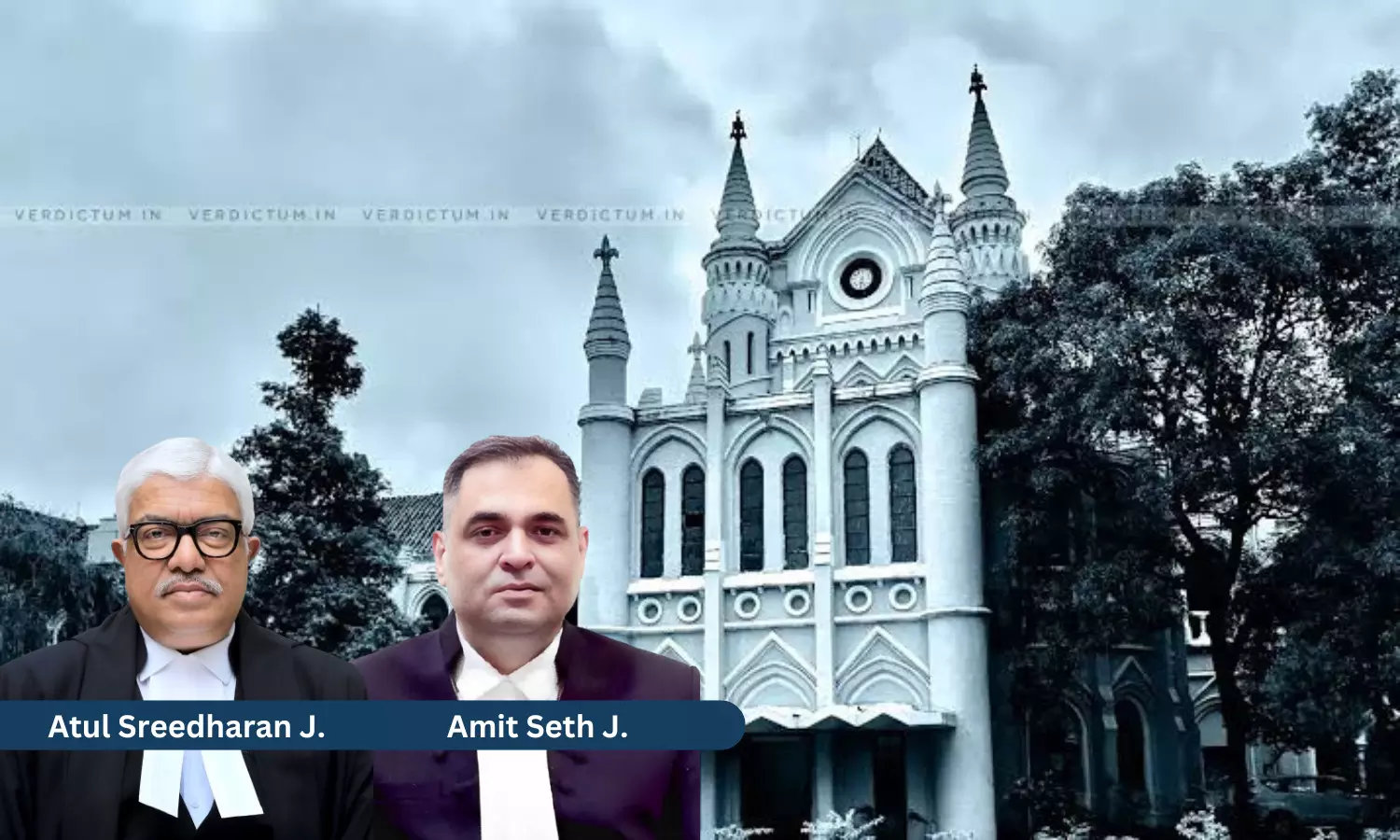
Justice Atul Sreedharan and Justice Amit Seth, Madhya Pradesh High Court
Complainant Has No Right To Seek Action Against Judicial Officers, Decision Rests Solely With High Court Under Article 227: Madhya Pradesh High Court
 |
|The complainant alleged that the trial judge misled him into not presenting a defence by suggesting acquittal was likely.
The Madhya Pradesh High Court has clarified that a complainant does not possess a legal right to demand action against a judicial officer for decisions made in a judicial capacity, while imposing a cost of ₹50,000 on a litigant who accused a Judicial Magistrate of misconduct after being convicted in a criminal case.
The writ petition arose out of the litigant’s complaint against Judicial Magistrate First Class Khalid Tanveer. He had been convicted in 2022 under Section 332 of the Indian Penal Code (IPC) for voluntarily causing hurt to a public servant and was pursuing an appeal against his conviction when he submitted the complaint.
A Division Bench of Justice Atul Sreedharan and Justice Amit Seth held, “A complainant merely does the work of a messenger by bringing to the notice of the High Court the error on the part of the Judge. The wrong if any, committed by the erring Judge acting in his/her judicial capacity, its cognizance can only be taken by the High Court. The complainant is not a person aggrieved when he or she intimates the High Court to act against the erring Judge for his judicial decision and the role of the complainant comes to an end with the complaint being preferred before the High Court. Whether or not to act against such a judge of the District Judiciary on the administrative side, is not a legal right vested in the complainant, but the prerogative of the High Court under article 227.”
Senior Advocate Narinder Pal Singh Ruprah appeared for the Petitioner and Advocate Rajvardhan Dutt Pararha appeared for the Respondents.
Background
The complainant alleged that the trial judge had, during the course of trial proceedings, assured him that acquittal was likely as none of the prosecution witnesses had implicated him. He further claimed that the judge advised him that defence witnesses were unnecessary, implying that there was insufficient evidence for conviction. He said two prosecution witnesses had turned hostile and that the third could not be cross-examined. On this basis, he alleged the judge misled him into not producing a defence.
Findings
The High Court found the allegations wholly unsubstantiated, observing, “The allegation is with regard to an undertaking given by the judge (respondent No.2) that the petitioner would not be required to produce the defence witnesses as the prosecution evidence itself is inadequate to convict. No reference with regard to place, time, date or where such statements were made is given in the complaint.”
The Court termed the complaint an abuse of process, intended to exert pressure on the judiciary. The Court observed, “As it is, the Judges of the District Judiciary of Madhya Pradesh find themselves between the devil and the deep sea. On one side it has the High Court, literally breathing down their neck, instilling in them an unwarranted fear of action on the administrative side for their judicial orders resulting in acquittals and granting bails, and on the other hand of this spectrum, the district judiciary judges have to face such frivolous complaints from unscrupulous litigants who exploit the mindset of the High Court in order to bring pressure to bear upon the judges of the district judiciary. This is most deplorable and needs to be dealt with a heavy hand.”
The Court also distinguished situations where the judge’s conduct may fall outside judicial or official functions—for example, a judge committing an act of personal misconduct like physical assault. In such cases, the aggrieved party may pursue alternate remedies available under the law, in parallel with any administrative examination by the High Court.
Finding the complaint to be vexatious and devoid of merit, the Court dismissed the petition and imposed costs of ₹50,000. The Bench concluded that the petition was a tactic to cast aspersions on a judicial officer and interfere with the due process of law.
Cause Title: Rajneesh Chaturvedi v. High Court of Madhya Pradesh & Ors.
Appearance:
Petitioner: Senior Advocate Narinder Pal Singh Ruprah, assisted by Advocate Muskan Anad
Respondents: Government Advocate Rajvardhan Dutt Pararha.